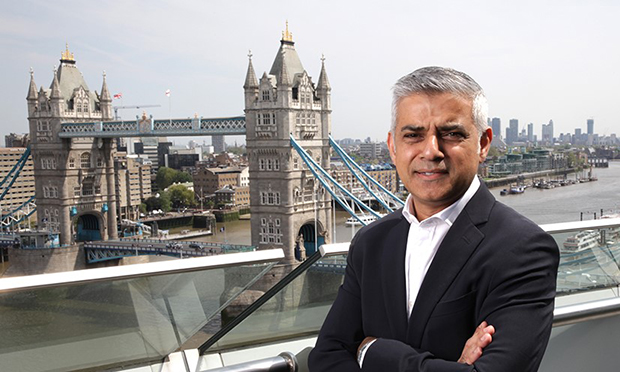25,000 new jobs in Hackney since 2012 Olympics – five times higher than forecast

London Mayor Sadiq Khan hailed the findings as part of the 2012 Olympic legacy
Hackney has seen an “economic boom” since the 2012 Olympics, according to new research hailed by London Mayor Sadiq Khan, with five times more new jobs created by this year than was predicted in 2013.
A report by forecaster Oxford Economics finds the borough has 25,000 more new jobs than was forecast in 2013, as part of a 110,000-job increase across the six Olympic “host boroughs”.
The 24.4 per cent increase in job growth in Hackney as of 2017 – compared with 2013’s forecast of 4.7 per cent – is mostly high-level jobs, with 75 per cent requiring a bachelor’s degree or an equivalent qualification.
Hackney and the other Olympic boroughs have also seen a population boost, with young professionals and migrants of working age moving in, attracted by “job opportunities” and “relatively more affordable housing”.
Jobs and employment rates are expected to keep getting better, the report adds, with forecasts revised up to reflect what has happened.
Mayor Khan hailed the report as a sign of the success of the 2012 London Olympic Legacy “regeneration” agenda.
He said: “I am pleased to see this area of London is providing tens of thousands of new jobs for Londoners in important industries like technology, science and media.
“This is great news for East London, great news for our city and our country.
“It shows what can be achieved by bringing together a world-class public realm, access to culture and proper co-ordination between affordable housing, social infrastructure and transport, and should be a good example of providing good growth across our city.”
David Goldstone, chief executive of the London Legacy Development Corporation, added: “The report comes as welcome confirmation of the continuing success of the regeneration work in East London.
“The analysis showing East London outperforming the rest of the capital in terms of job creation and population growth is testimony to the investment by the public and private sector and the forward planning to create a new part of the city.”
Oxford Economics said its 2013 forecasts were proved wrong because productivity was worse than expected.
In its report, the group said: “Productivity is the key driver of long-term GDP growth, and in 2013 we were expecting productivity to recover to pre-recession trends, curtailing the pace of employment growth.
“However, this did not come to fruition, with preferring to rely on hiring more workers to meet growing demand rather than invest in capital to boost productivity.”
It said the forecast also left out “planned developments completed between 2012 and 2016 that will have had a significant residential and commercial impact on the host borough economy.”

This reads like a ‘win win win festival of proomotion’ for too many persons already in well paid posts.
Can we have a detailed breakdown please of where the new opportunities are in?
by sector
by age
by gender
by income – wages/salaries
by origination of those who allegedly have been so lucky –
eg
where they were born and
where they went to school college etc
What they did before they got these new jobs
Were they jobless?
Were they apprenticed?
How many of them are on zero hour contracts
How many are full time
How many part time
What correlation is there between the Olympics Legacy and those jobs?
Oh dear not another “We love Hackney” story. Emilys questions, if answered will tell a diffent reality.
The Olympic Legacy is a nonsense and nothing more than an attempt to justify a massive spend, paid for by the people and comsumed by the few.
The promise of new housing didn’t materialise. The promise of jobs didn’t materialise and the promise of both new social and structural changes didn’t materialise.
What we have seen is a total restructuring of the borough into a canton for a new demographic, along with a social policy aimed at mirroring these changes. In the real World this is called social cleansing.
I suspect Emily’s questions won’t be answered.
I doubt you need a bachelor’s degree to work at Westfield, although apperently you do to work a coffee machine these days.
Surely a non sequitur. Hackney’s star was rising already and the type of influx had nothing to do with the Games. It was more just a Spitalfields/Old Street overspill.
Let us also include how much is going to be lost due, tangible and intangible, to the High Street-isation of Hackney Wick and the pushing up of rents, and the reduction of living standards, to house all these newcomers.
I don’t think local families who can no longer look forward to their children being able to live in the area, see it as a “success”.
There appears to be no causation link to the Olympics in the report except “tourism” but how many tourists came to Hackney? They were all funneled out via Westway.
“We had expected a slight net outflow of migration up to 2016, however this has been confounded by a rapid inflow of migrants into the area. This is likely to be driven by a combination of international migrants and young professionals moving from other parts of London and the UK to avail of relatively more affordable housing as well as job opportunities in the local labour market.”
Job growth was strongest in professional, scientific and technical activities, not sports.